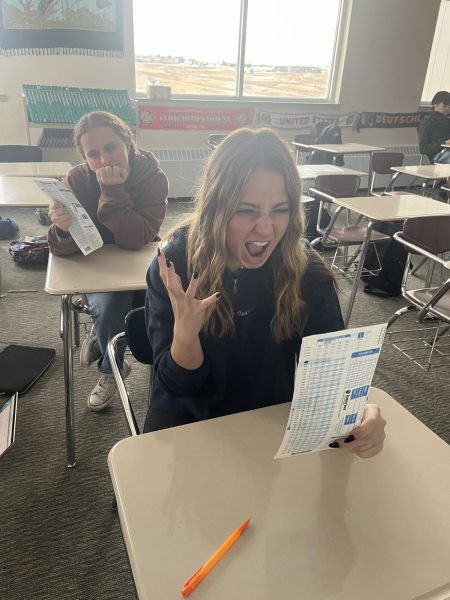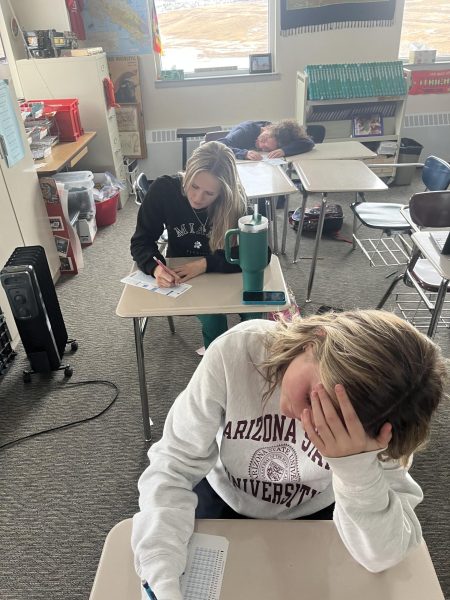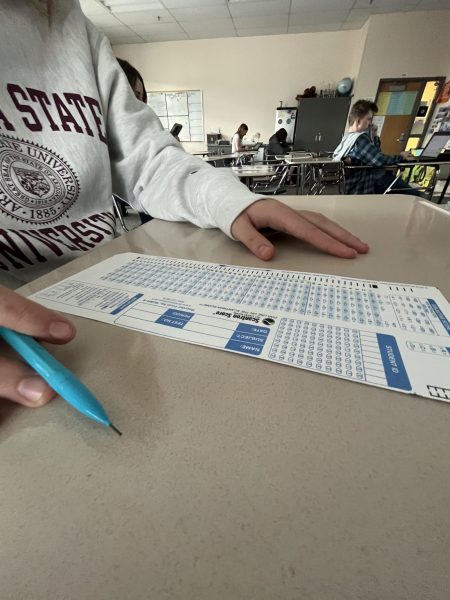As I’m spending every Monday night studying and paying expensive fees to retake the SAT for the fifth time, I think to myself: there
has to be a better way to test my knowledge and skill set necessary for my future. All I need is 100 more points. Just getting five extra questions right would provide me with the 100 points I need to get accepted into a college of my dreams that still requires one to submit their test scores.

I decided to ask some of my classmates what their views were on standardized testing. Piper Stroh illuminates, “I think it’s not beneficial because many of us have skills pertaining to other things and that shouldn’t define if we get into college or not.” Marissa Blakemore states how “standardized testing is a daunting task.” Maddy Hindes did stellar on the SAT and still thinks “it’s not an accurate representation of the skill set, especially for those who are bad test takers.” Last but not least, Alex Rowe explains how “even from a young age, I asked myself: why am I doing this?”
Ever since middle school we’ve been subjected to tests such as the MAP or CMAS tests that are presumably to see how well the school system is doing. These tests evolve into the SAT or ACT which are held at larger standards for the student, for they can determine what college one may be able to attend. However, a lot of schools are switching over to “test optional” which means one doesn’t have to submit their test score if they please want to. According to the article, “A College Admissions Expert Explains What Going Test-Optional Means for High School Seniors” written by Elizabeth Heubeck, “the SAT or ACT was considered a central

The idea of standardized tests may have good intentions, good intentions don’t always translate into effectiveness. Above the stress
and anxiety factors of standardized tests, they aren’t even an efficient source of determining the knowledge of a student, for there can be better options. In the article “Standardized Testing is Still Failing Students”, Cindy Long puts forth the concept of “performance-based assessment” which “allows students to demonstrate knowledge and skill through critical-thinking, problem-solving, collaboration, and the application of knowledge to real-world situations.” This system doesn’t entail the capabilities to be biased and prepares students for the real world. Sitting down at an old school desk with fluorescent lights shining on the thick packet before us and a number two pencil in hand with a mind full of uneasiness doesn’t set us up for success. We need to stray away from “tests that don’t accurately measure student learning and growth” and work towards what should be the common goal: accepting a student for their honest abilities (Long).

